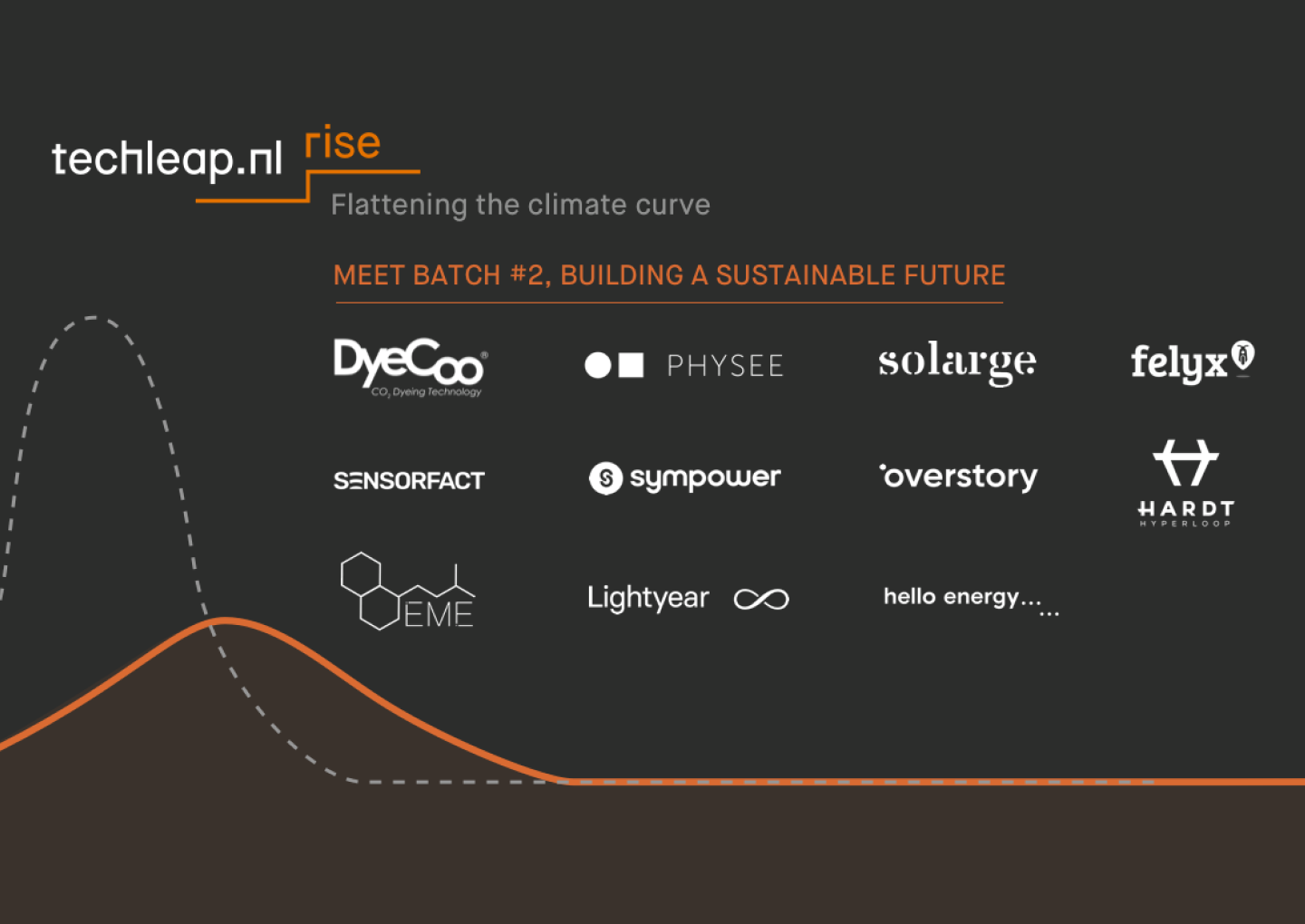
Join our campaign
If you are a startup platform entrepreneur and want your voice to be heard, you can join our campaign by signing our community statement. Simply add your signature as a comment at the bottom of the page.

Joining us to discuss the act are Constantijn van Oranje, Special Envoy Techleap, Prabhat Agarwal from the European Commission, Benedikt Blomeyer from Allied for Startups (AFS), Judith Huisman founder of MeetingSelect, Dutch Parliament member of the VVD party, Jan Middendorp and Kim van Sparrentak, member of the European Parliament for the GroenLinks party.
Prabhat, who has been heavily involved in the writing of the DSA, highlighted a few of the key areas which he hopes will be addressed.
One is in making sure that for startups, the European Union stays easy to scale up and compete in. The other is ensuring the larger platforms hold a higher level of responsibility.
“Many of you in the startup communities rely on the ability to grow in Europe. In order to do that, you need to be sure you can operate from the Netherlands across the entire single market.”
“You need one set of rules and not 27 in the European Union. This is known as the country of Origin Principle. At the moment there’s a lot of pressure on this rule because a lot of Member States have been particularly frustrated with the large platforms. Issues such as hate speech or terrorist content mean they’ve felt it necessary to make special rules for platforms in their own country.
“There’s pressure over whether these old rules, in what is known as the E-commerce Directive, are still the right kind of rules. The Commission decided these should be overhauled - but one key objective and this is where the startups come in, is that we maintain an environment in which a Dutch entrepreneur can grow across the whole European Union”
Prabhat mentioned that the goal of the Commission is to prepare the DSA proposals for the end of the year.
Prabhat talked about two of the biggest things the E-commerce Directive does for entrepreneurs.
“First, it guarantees that no other Member States can restrict your digital service. If your innovation is in the area of digital service and you want people in Germany or Belgium to use it, then the e-commerce Directive at the moment prohibits those countries from introducing a restriction.”
“The second thing is for a special category of a startup, that is dealing with third party content. Either because you have a rating platform or a marketplace, we call them intermediaries, you are protected from liability if something illegal happens on your platform, up to a certain point.”
However, attitudes have shifted in recent years, as tech giants face increasing calls for accountability over the content appearing on their platforms.
“Another thing we’re working on is to understand how we can help startups enter ecosystems where Google and Facebook are really big. We call them ex ante rules. To give you an example, when Facebook announced Libra, they were leveraging two billion users from their social network site into the cryptocurrency space. There were lots of innovative cryptocurrencies in Europe - but they could have been wiped out and there’s really nothing an entrepreneur could do.”
Allied for Startups is a global network of associations, focused on improving the policy environment for startups. When it comes to the DSA, the AFS network has three main priorities.
“The intermediary liability exemption is really the backbone of our digital economy, it exempts intermediaries from being liable for user-generated content if they fulfil conditions like the notice and takedown framework.
“In light of Covid, we see issues like misinformation and fake face masks sold online. Policymakers are asking themselves how this can be improved. So there’s political relevance for getting these rules right today and we want to find a solution that gives legal certainty to entrepreneurs, giving them a clear pathway to limited liability.”
“In this context, it’s really important to understand the link between liability and incentivising platforms to do more. In the E-commerce Directive the more you perform any type of editing on content, the more liable you become. If we want entrepreneurs to tackle illegal content, they won’t be incentivised to do so if they’re increasingly liable.
“Secondly, no general monitoring obligation from the E-commerce Directive should be upheld. Startups cannot be obliged to monitor all user-generated content. We’ve seen this in the copyright debate, that for startups content filtering is undesirable for fundamental and also for technical reasons since there are no filters that meet industry standards.
“Thirdly, let’s rebuild a strong country of origin system. This reform is a great opportunity for EU bodies to clarify and harmonise this principle.”
Of course, there are further areas to be considered and the DSA is an extremely complicated piece of legislation. However, it’s the above-mentioned points that AFS feel should be focused on as a priority.
Kim highlighted the areas her party wants to see tackled - and how big an impact the new legislation could have on the future of online services.
“We think that if done right, the law could renew the internet’s original promise, to be a decentralised open network, that allows everybody to communicate, create and participate in freedom.
“We should stimulate the diversity of the online ecosystem with the emergence of new providers and real alternative services by lowering barriers for entry to market and regulating some of the most toxic activities that we see at the current dominant platforms.”
Judith echoed that need for a more equal environment, using search engine rankings and the approach to content removal as examples.
“It’s very difficult from a platform perspective if you’re a competitor of Uber to get listed on the first page of Google because the cost of rankings is much higher.”
“When you look at the giants and you want the content to be removed, it takes forever, if you have some legislation that matches all the platforms, small or large, I think you already have a solution for incorrect content.”
Another issue Judith raised was how quickly these new laws need revamping - and that from a startup perspective, a regular revision period would be beneficial.
“I think it’s very wise that when we create law, that we are able to have in the programme a period of time where it’s up for revision because the economy in the digital world moves so incredibly quick that the law we create today, is outdated tomorrow.”
While agreeing that the limited liability regime should be kept in place, Kim says the way marketplaces are regulated needs revisiting, suggesting the need for an independent European regulatory authority.
Recognising the role intermediaries play in establishing a contract between consumer and trader is vital from a Green perspective, who insist that a platform should be liable if it has proof of illegal activity and did not take action.
While the goal here is ultimately to help create a fairer environment for startups, Jan warned about how past legislations have caused unwanted consequences. One example is when new GDPR rules came into effect.
“I know people who have started a company - and when they want to experiment they move to China because of data rules. We all share the ambition to have a thriving digital economy in Europe. This legislation is going to be extremely important.”
He raises a similar issue when talking about Cookies: “The big tech companies have no issues whatsoever with this - but the small publishers have quite a lot of issues. This is an example of where with good intentions, we try to create a market space for publishers but these top-down rules don’t always play out well.”
There is another view, that for the concerns raised about the bigger platforms, some of the potential changes could ultimately have a negative effect on startups. It must be noted that many new businesses have benefited from services, such as advertising, offered by platforms like Facebook and YouTube.
Startups are vital to the future of the Dutch economy. That’s why such a strong effort, in terms of the COL and TOPSS schemes, has been made to offer support during the coronavirus pandemic, to ensure as many entrepreneurs as possible, can continue to create
Moving forward the DSA will be crucial in allowing these businesses to compete with the household names - and do so with a set of rules that provide far more clarity.
This acknowledgement that startups are so essential to the Netherlands’ long-term economic future, means your voices are more powerful than ever in terms of shaping what any new legislation may look like.
That’s why Allied for Startups, Techleap.nl, StartupAmsterdam and the Dutch Startup Association are advocating for:
“The underlying goal of the Digital Services Act should be to make it easier for startup founders to found a platform and scale it across the continent.”
If you are a startup platform entrepreneur and want your voice to be heard, you can join our campaign by signing our community statement. Simply add your signature as a comment at the bottom of the page.

If you are a startup platform entrepreneur and want your voice to be heard, you can join our campaign by signing our community statement. Simply add your signature as a comment at the bottom of the page.

Today we announce the 11 high potential tech scaleups joining the Techleap.nl Rise Program: “Flattening the climate curve".

Avishai Trabelsi, Roni Liberman and Sam Houwen set up Quicargo with one goal in mind – no more empty trucks on European roads. In this interview we discovered how their company has ushered in a new era of cooperation in the freight industry.

Floryn offers small to medium-sized businesses a flexible, fast line of credit, without mountains of paperwork and weeks of waiting. We chatted to CEO and co-founder Sven van der Biezen to find out more about his journey.